“If you are lucky enough to have lived in Paris as a young man, then wherever you go for the rest of your life, it stays with you, for Paris is a moveable feast.”
—Hemingway
Ten years ago, on a bright, clear day in June, my husband and I went to France for a month-long honeymoon. Our cultural capacity back then was measurable in teaspoons; we knew as much about French culture as we did about sex. As small-town Christians with our virginity still intact, we felt about as French as a hot dog on the 4th of July. Miraculously, that didn’t matter. Paris is a strong current that blesses humility. If you wake up in the Marais with no agenda but to be alive, this current will find you and take you places you could never go if you were full of plans and certainty.
After four weeks of touring vineyards and eating terrine and baguette by the pound, we were converts. We made a second vow, promising to visit France once a year for as long as we both shall live. Excepting the year of our Lord 2020, we have kept that promise. Everything I have ever learned about loving another person started in France a decade ago. This year, we celebrated our tenth wedding anniversary back where it all began. Here, in no particular order, is everything we’ve learned about love since then, plus a handful of pictures from our time there.
Focus on union
One of my favorite dishes in France is called a quenelle, a mixture of fish, pastry dough, egg, and cream. It is usually baked and served in a creamy tomato sauce, and the full effect is out of this world. Though I’ve had it twice—once in Lyon and once in Paris—I still find it impossible to describe. It doesn’t taste like any of its individual elements, but like something transformed and completely new.
There are a thousand examples just like this in France, of ingredients coalescing in a technicolor experience that transports the soul. Over time, I’ve come to see this as a recipe—pun intended—for a wonderful marriage. In love, the goal is to become a union that surpasses what either individual could have on his or her own. Modern thinking has distilled this complex and mysterious process down to lists of traits and terms like “high-value man” (or woman), both separating and objectifying the sexes. It also diverts focus from the real question in any relationship: How do we work together?
Our era of digital curation preaches that you can “self-help” your way to a good life, as if cold plunges and bath bombs and ten-step morning routines will make you a magnet for the right person. It’s all bullshit. Self-actualization happens in the tension of real-life relationships and daily doses of self-sacrifice. In a good union, you end up finding more of who you are, not less. Coming together does not erase distinctions but sharpens them. This is love’s greatest mystery and paradox; in laying our life down for another person, we finally find more of it than we ever planned.
Beauty is a necessity
Every time I visit Paris, I am amazed by its excesses: the Tuileries, the Louvre, the Champs-Élysées, the Luxembourg Gardens, Versailles, the Musée d’Orsay, the Pont Neuf, and hotels like The Ritz or Le Meurice. Even the Eiffel Tower sparkles with golden lights every 30 minutes in the evening. Most of these attractions are free or open to the public for little to no cost, including hotels that offer the most sublime bathroom experiences. This makes what would otherwise be an overstimulating place feel restful.
One of the things we fail to be honest about when it comes to marriage is the simple fact that you will look at your spouse every day until you die. How you feel when you look at that person matters. Marriage is a lifelong, full-contact sport, and being chronically careless about the way we show up in that sport is selfish and psychologically destructive. It’s like buying a house and never bothering to hang a picture or paint the walls, or tend to the landscaping.
Beauty triggers arousal, excitement, and all the other fun erotic things. But it’s so much deeper than that. Beauty also cultivates feelings of comfort, joy, calm, vitality, and even safety. When a person or a place is beautiful, we relax and soften into our best selves. What separates beauty from hotness is timelessness. Even in the postpartum belly rolls, chronic pain, and cancer diagnoses, elegance exists. A big smile, a dress worn for no particular reason, wine in good stemware, wildflowers near the sink, clean hair, and bright, attentive eyes don’t hurt either.
As my husband says, “Beauty may not be everything, but it sure makes everything nicer.”
You don’t find time, you make it
Anthony Bourdain once said that the only true way to enjoy Paris is to have sex and spend an entire afternoon at an average cafe smoking cigarettes and drinking a glass of wine. This is the French way of enjoying France. There is also the American way of enjoying France. People come and visit museums and landmarks in quick succession, often without more than an hour’s breadth between stops to notice what is happening around them. Some come back to the States and proclaim that France was “fine”.
The same France exists for all people: the slow one by the Seine and the quick one darting from the Champs-Élysées to the Eiffel to the Louvre. The difference in experience comes down to choice.
Our French friends have this saying: You make what you like. It’s a poor translation of the verb faire, which means ‘to make’, but the idea is simple: In life, you don’t find what you like, you take part in its creation.
I think back to seasons in marriage when Tony and I fought the most, and they were always during our busiest periods; times when we allowed every open slot in our schedule to be co-opted by others. Instead of being masters of our lives, we were victims of it. Space to do nothing in a relationship is like oxygen to the brain. It leaves room for the crucial and unstructured parts of a relationship—intimacy, humor, comfort—to emerge naturally. Time together for connection operates by design. It arises in the form of a slow and refreshed attentiveness. Paying real attention to the person you love also cures a multiplicity of evils, even if you did put their favorite shirt in the dryer, yet again.
Pleasure is not a reward for being “good”; it is an essential part of being alive
Parisians take little breaks for pleasure all throughout the day. In the mornings, it's a coffee and a cigarette, while for lunch, it’s a small glass of white wine with their meal. At happy hour, most Parisians empty out into the cafes, known as the “living room of Paris”.
This worldview is somewhat antithetical to the American way of thinking. The French do not view pleasure as a “reward” for doing something good, but as an integral part of daily living. It is sustenance, much in the same way food is to us.
Every evening, Tony and I drink a glass of wine together. It doesn’t matter if we got home from a long trip at 10:30 pm or have succeeded at nothing else but driving the other person nuts. The ritual reminds us to stop, take a beat, and find pleasure, yes, in the food, but also in each other. We take time to smell the wine and repeat back to each other what we like about it. The consistency of this ritual reminds us that just being human is enough of a reason to celebrate, even on the shittiest day when we both feel like we did everything wrong. Pleasure is not a reward for being good; it is a grace to all for being human.
The pursuit of perfection kills libido
Every time I go to Paris, I am reminded of how truly weird America’s obsession with Botox, implants, extreme fitness, crash diets, and fillers is. In Paris, the norms of feminine flaws are blessedly restored. I can count on one hand the number of women I’ve seen in Paris who look like they’ve had work done. It’s extremely rare. Yet they still manage to look sexier than the average American, probably because they’re not wearing Crocs, my editor quipped.
In my observations, French women do not focus on perfection, but on sensuality. There is an emphasis not just on how a body part looks but also on how it feels: the texture of a fabric, the scent of a perfume, the thickness of a lipstick. The focus of European beauty is different. Parisians do not spend so much time eradicating their imperfections as they do highlighting natural beauty. They draw attention to the color of their eyes, the glow of their cheeks, the warmth of their hair. This subdued polishedness to me is the sexiest thing of all.
Perfection, on the other hand, rips the soul from the body in striving after “the ideal”. In the absence of time to feel alive or aroused, we go for metrics: counting calories, getting our steps in, injecting units, and depriving ourselves of a big, juicy life. Much like in our relationship to sex, enjoyment resents approaches that are too intense. Eventually, aging has a way of imposing certain ultimatums: you can choose now to have great sex without having lost the ten pounds, or you can chase the “perfect" body without having time for good sex. You cannot, as the good Lord says, serve two masters.
Attention is the key to longevity
Like all good wine lovers, I have endured the litmus test of buying a beautifully labeled, often expensive bottle of wine that stinks of vinegar and tastes like cardboard. Even some of the most renowned French wines have broken my heart in such a manner. The freshness is all gone, and in its place is something empty, flat, and lifeless.
The primary difference between an old wine that has lost its sparkle and an old wine that tastes like the blood of God is preservation. Many things can happen to a wine in its lifetime that compromise its integrity. Exposure to too much heat or temperature variation causes oxidation and flavor loss. Some wines have a bad start due to careless winemaking pre-bottling. But the vintages that make it to the ten, twenty, and thirty-year mark with their youth still intact and full maturation all have this in common: the careful hands of a craftsman vintner.
In a word, the make-or-break of a lifelong partnership is the simple act of paying attention. We don’t stay faithful to the people who have stopped seeing us and treating our lives as worthy of their fullest engagement. If ever I feel like Tony and I are fighting and not finding a resolution, I backtrack to the moment things went sour. In every single case, it contains a moment where one or both of us stopped listening and paying attention to the other person. And not just with the mind, but with the heart.
Susan Sarandon says it best.
We need a witness to our lives. There’s a billion people on the planet—I mean, what does any one life really mean? But in a marriage, you’re promising to care about everything. The good things, the bad things, the terrible things, the mundane things… all of it, all of the time, every day. You’re saying, ‘Your life will not go unnoticed because I will notice it. Your life will not go un-witnessed because I will be your witness.
–Shall We Dance?
The vines that suffer produce the best wine
Someone once told me that marriage itself is not what’s hard; life in general is hard, and marriage is life to a magnitude of two. Our honeymoon in Burgundy exactly ten years ago evidenced that truth. After some painful flashbacks, I intuited that I had enough childhood trauma to make an HBO documentary with several seasons. Tony had a similar story.
One day, while he and I overlooked a field of gold and green vines that stretched on for miles, my new husband told me that the vines that experience drought produce the best wine. Harsh conditions force a plant to reach deeper into the soil for the nutrients that a fairer set of weather conditions wouldn’t provide. I sighed at that like it was the life raft I needed.
Sometimes it is as simple as a glass of wine or sex or an hour on the couch surfing Netflix or listening (again). But I do acknowledge that there are times when life hits so hard and fast that there’s no time for any of that. All I ask is that you try to remain. Remain close, remain present, remain still open to the possibility of union, despite the imperfection.
Edits by Lauren Ruef
Photos by Tony Anderson




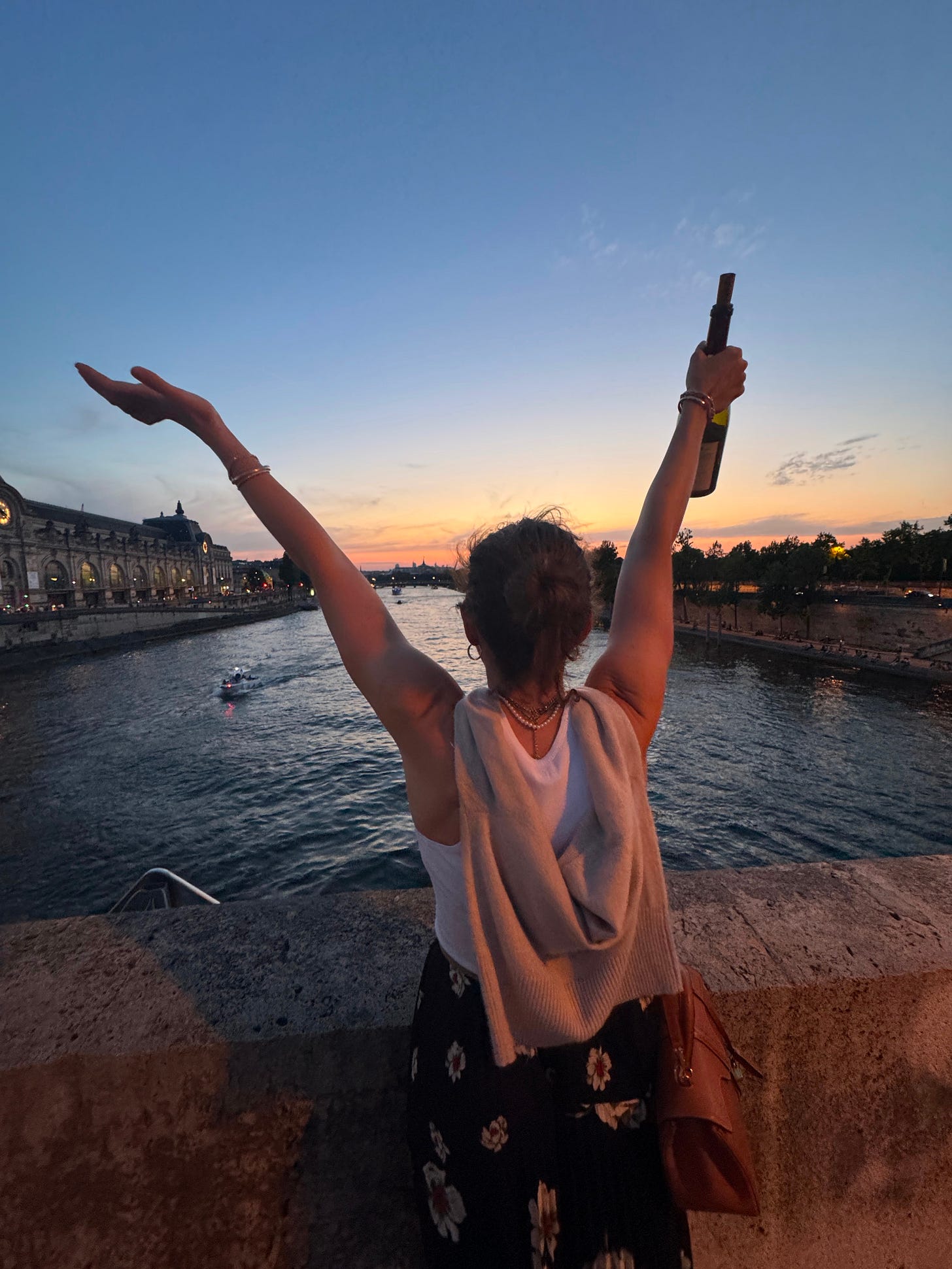
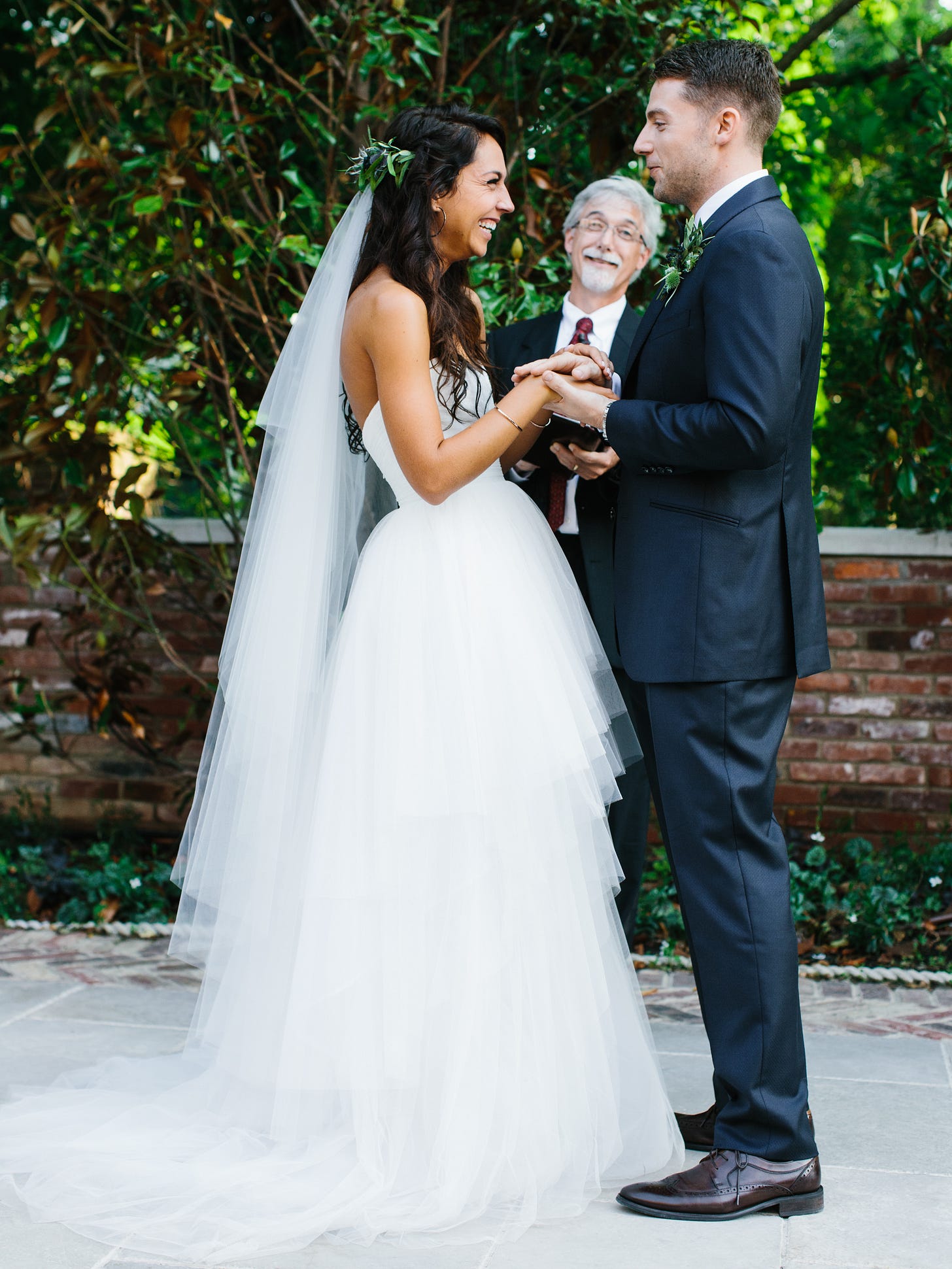
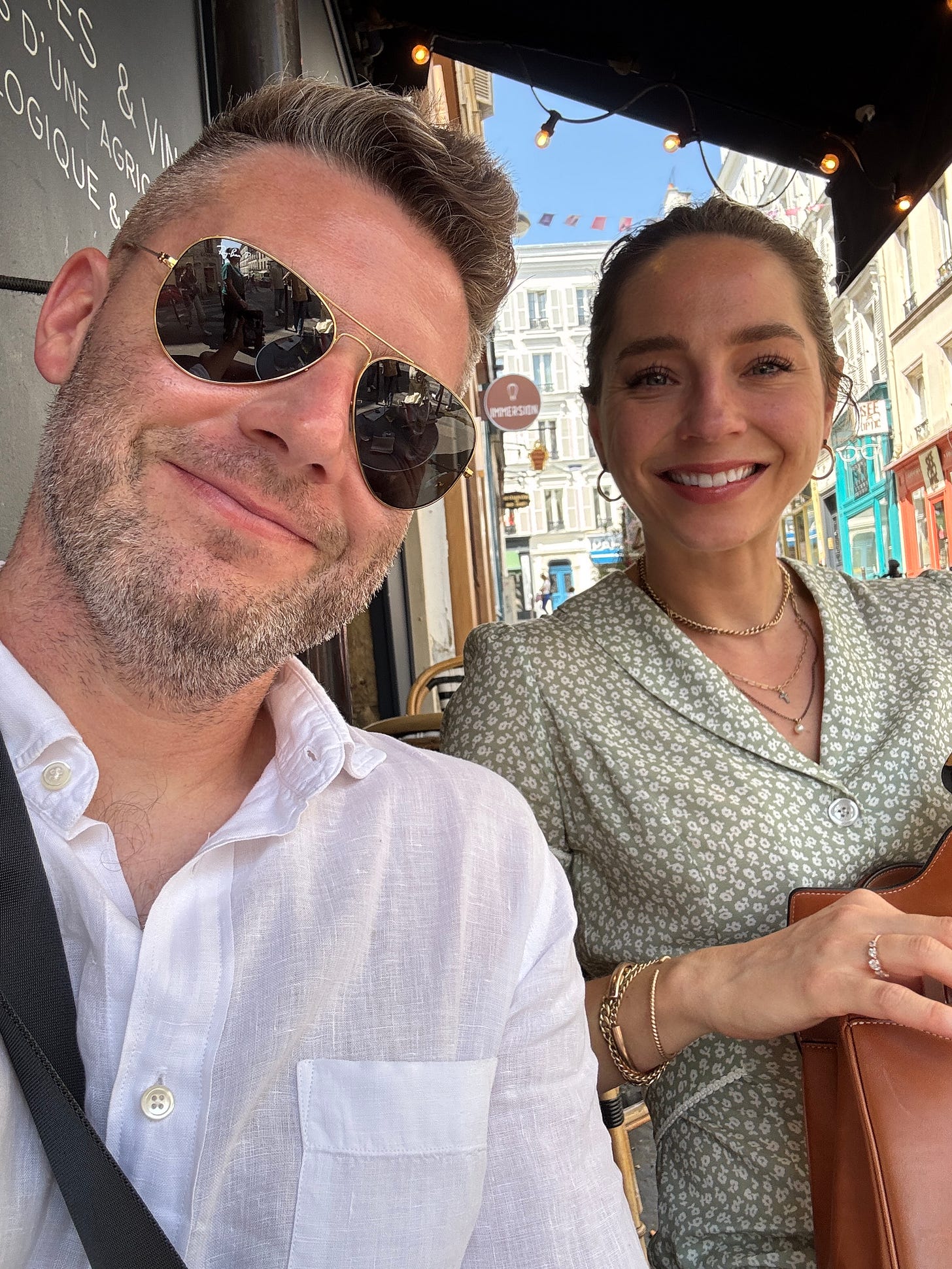
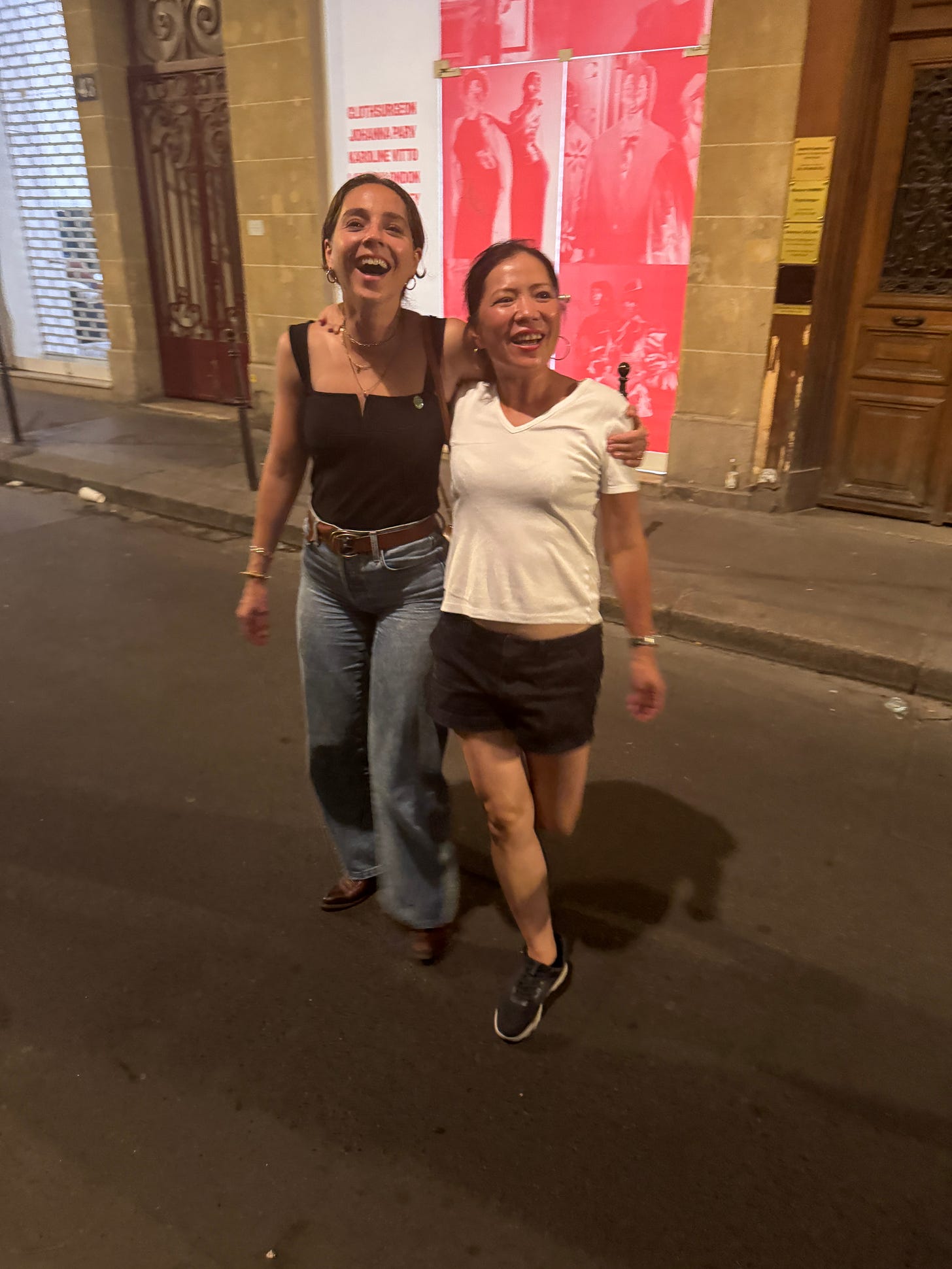
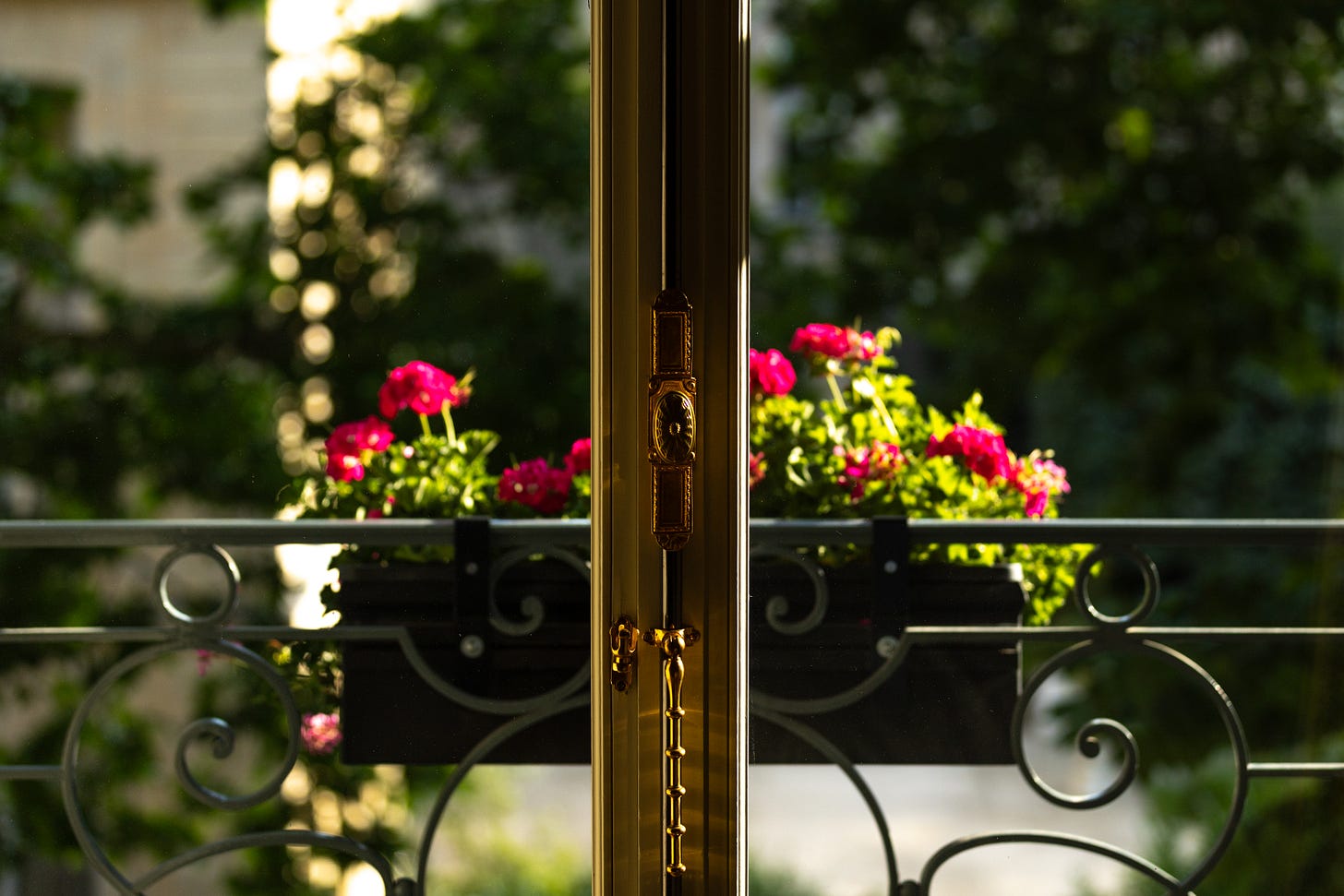





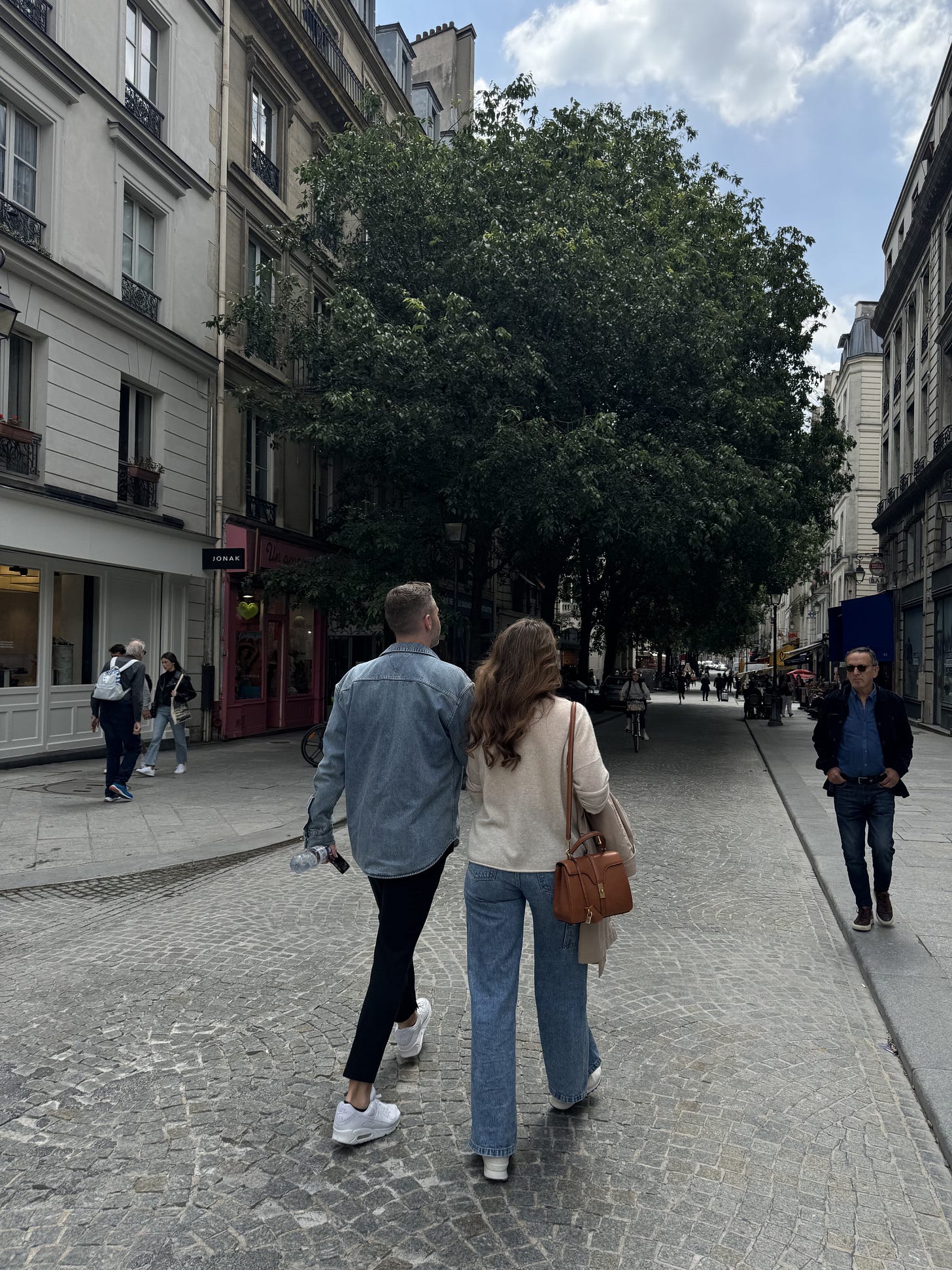
Beautiful and heartfelt- such a honest offering and a wonderful gift to all who read it.
Brooke, lovely as always. Your writing inspires me to take more time for reflection. Just love how you so thoughtfully mold it all together every time. Keep going.